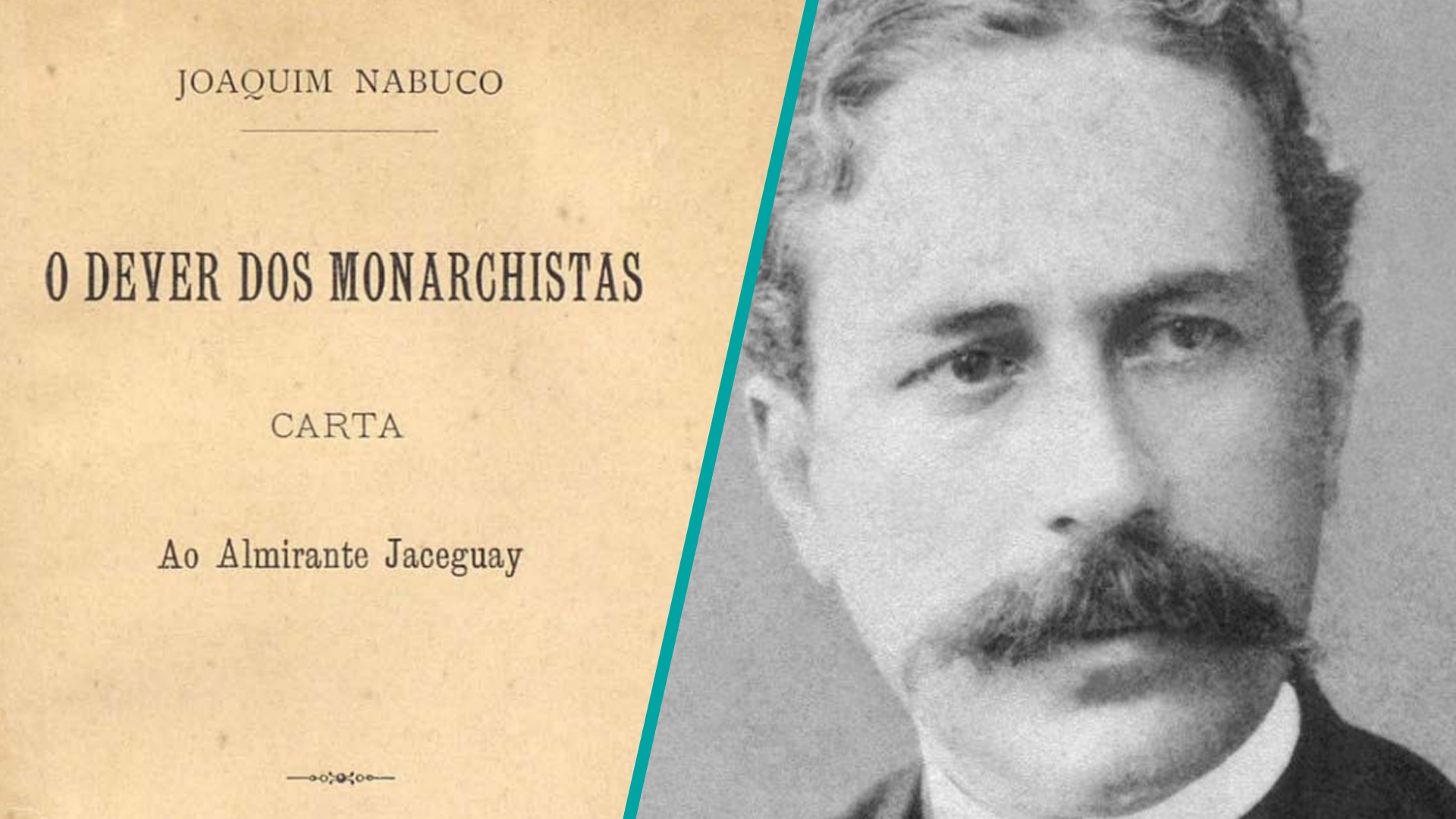The importance of Joaquim Nabuco as a statesman in Brazil in the 19th century is very obvious, whose actions played a crucial role in the abolition of slavery. He is the author of famous works, but curiously little known, such as “Abolitionism” and “Minha Formação”. However, today I will talk a little about a letter written by Nabuco in 1895 to Admiral Jaceguay, entitled “The Duty of the Monarchists”, in which he strongly defends the Constitutional Monarchy as a form of government.
In this letter in which Joaquim Nabuco responds to a question asked by Admiral Jaceguay about his persistence as a monarchist after the fall of the monarchical regime in 1889. Nabuco provides an eloquent, erudite and sincere response, highlighting his deep love for Brazil. He addresses racial issues, comparing the situation of black people in the United States, the Brazilian Empire and European monarchies. Nabuco exposes the racism faced by black people in the United States and highlights their difficult social ascension in the “great Republic of the North”.
Nabuco states:
“(…) In the United States it would be possible for a mulatto, whatever his genius, reach the position of literary royalty. (…)” – here he makes a reference to Machado de Assis.
Read too: Why I Continue to Be a Monarchist – A Necessary Letter | Review
It is possible to notice when reading the letter that in Imperial Brazil there was a notable social rise of black and mixed-race people in various areas, including journalism, literature, law, politics, engineering, medicine, teaching, science and religion. During the Second Reign, there were no insurmountable barriers to the recognition of talent and genius, as evidenced by the examples of Machado de Assis, André Rebouças, José Maria da Silva Paranhos, Eusébio de Queiroz and other members of the mestizo middle class who are recognized to this day .
Furthermore, Joaquim Nabuco mentions in the letter the not only social but also political virtues of the Monarchy. In one excerpt, he writes:
“(…) I am certain that the beneficial function of the monarchy in Brazil was this: discovery, conquest, settlement, Christianization, building, planting, organization, defense of the coast, expulsion of the foreigner, unification and conservation of the territorial whole; administration, stability, a perfect order within;
independence, political unity, parliamentary system, feeling of freedom, the haughtiness of the Brazilian character, inviolability of the press, strength of oppositions, minority rights; training, aptitude, administrative morality; the disinterested political vocation; credit, reputation, civil equality between races,
peaceful extinction of slavery; military glory, renunciation of the right to conquer, international arbitration; literary and scientific culture the strongest in Latin America; lastly, — as the realized ideal of ancient democracy, the rule of the best man – a Periclean reign of half a century.”
In “The Duty of Monarchists”, Joaquim Nabuco praises the monarchical federative system for providing political stability to Brazil for more than half a century. He argues that the federation was viable in the Monarchy, since the head of State had no interest in undermining the autonomy of the provinces in favor of his successor or party, unlike the presidents of the Republic. Nabuco ends the letter with an insightful and true reflection.
“(…) I know that it is as difficult to restore the monarchy as it is to restore religion, family, society. In politics, however, nothing is rarer than the faculty of discerning what is dead from what is merely interrupted. Who knows why the plant that gave it shade for so long might not be undergoing a mysterious renewal beneath the Brazilian soil?”
Did you like the review? Leave your comment and follow me on social media!
Assessment
- History
- Reading
- Typography
- Illustration
- Diagramming
Conclusion
In this letter in which Joaquim Nabuco responds to a question asked by Admiral Jaceguay about his persistence as a monarchist after the fall of the monarchical regime in 1889, Nabuco provides an eloquent, erudite and sincere response, highlighting his deep love for Brazil.
Assessment
- History
- Reading
- Typography
- Illustration
- Diagramming
Conclusion
In this letter in which Joaquim Nabuco responds to a question asked by Admiral Jaceguay about his persistence as a monarchist after the fall of the monarchical regime in 1889, Nabuco provides an eloquent, erudite and sincere response, highlighting his deep love for Brazil.










































